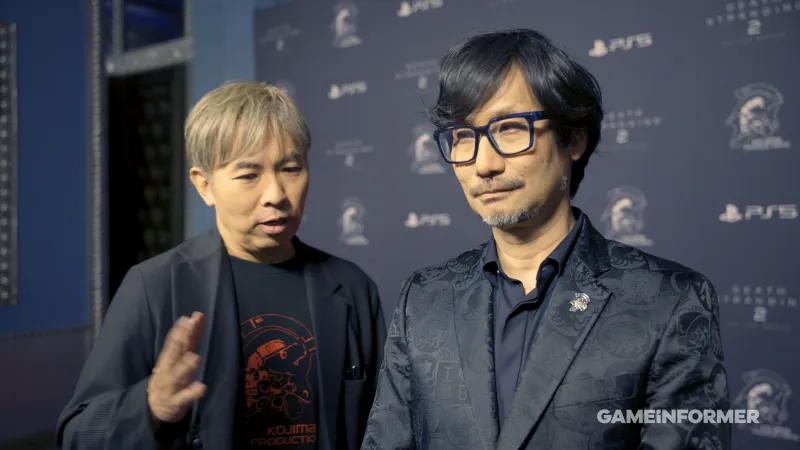Trump Hails Progress With China, but Details Are Sketchy


Two days of trade talks resulted in what leaders called a framework agreement meant to solidify terms of a truce that the superpowers reached in Geneva last month. President Trump said Wednesday that the United States and China had struck a deal to roll back some of the punitive measures they had taken against each other’s economies in recent months, including his administration’s recently proposed restrictions on Chinese students attending U.S. universities. The agreement followed two days of marathon negotiations in London, and will return the countries to the terms of a trade truce they had reached in May, following weeks of escalating tensions between them. “OUR DEAL WITH CHINA IS DONE, SUBJECT TO FINAL APPROVAL WITH PRESIDENT XI AND ME,” Mr. Trump wrote on Truth Social. “RELATIONSHIP IS EXCELLENT!” The full details of agreement were not immediately released. But it essentially involves China relaxing its restrictions on shipments of valuable rare earth minerals and magnets needed by U.S. manufacturers. In return, U.S. officials would roll back limits that they had placed on exports of U.S. products and technology, including ethane and airplane parts, as well as the proposed visa restrictions. Both had been intended to put pressure on the Chinese. Tariffs between the countries will remain unchanged. In his Truth Social post, Mr. Trump wrote that U.S. tariffs on China would be “a total of 55 percent.” That total adds together a 30 percent tariff he put on products from China in the last few months with a 25 percent tariff he imposed on some Chinese products during his first term. In reality, some tariffs on Chinese products are lower and many significantly higher. While Mr. Trump described the agreement as a “deal,” officials did not announce progress on any other trade issues, beyond rolling back the tit-for-tat measures taken against each other after Mr. Trump ratcheted up tariffs on Chinese products in early April. Wendy Cutler, the vice president of the Asia Society and a former U.S. trade negotiator, said that the United States “appears to have paid a heavy price” for regaining access to Chinese critical minerals and magnets, by putting export controls over technology on the negotiating table. “These matters have been deliberately kept off the negotiating table for years given U.S. insistence that national security-related measures are not appropriate for a give-and-take,” she said. “By apparently now reversing this long-held position, the U.S. has opened the door for China that will be difficult to close.-” “The London framework may signify an important turning point in U.S.-China economic relations,” Ms. Cutler added. Tensions between the United States and China started to spiral after Mr. Trump announced his “Liberation Day” tariffs in early April. China was the only country to immediately retaliate, matching Mr. Trump’s tariffs of 34 percent with 34 percent tariffs on American products. Beijing also set up a licensing system to restrict exports of seven rare earth elements that are mined and processed almost exclusively in China and used in everything from electric cars to smart bombs. Mr. Trump then responded by ratcheting up tariffs on Chinese products to a minimum of 145 percent, which brought much of the trade between the countries to a halt. That prompted China to hike its tariffs as well, while calling Mr. Trump’s actions “a joke.” The crippling tariffs started to push trade-dependent firms in both the United States and in China out of business, and threatened to result in empty U.S. stores shelves later this year. China’s mineral and magnet restrictions also proved deeply disruptive, resulting in the temporary closure of one Ford factory and threatening to shutter other companies. With collateral damage from their actions rising, officials from the United States and China met in Geneva last month and agreed to pause higher tariffs for 90 days and walk back other punitive actions. But since then, U.S. officials have complained that China had been slow to supply rare earth minerals and magnets to American companies. U.S. officials responded by clamping down on exports of some American products and technology to China, including software for making semiconductors; gases like ethane and butane, and nuclear and aerospace components. U.S. officials also proposed the ban on enrolling Chinese students. Last week, Mr. Trump held a 90-minute phone call with China’s leader, Xi Jinping — the first time the two heads of state had spoken directly since Mr. Trump returned to office in January. Just four days later, American and Chinese officials met at Lancaster House in London to try to restore their truce. The talks continued late into the night, at times growing tense and seeming as if they might fall apart, said a person familiar with the negotiations. Late Tuesday night, after the talks concluded, Commerce Secretary Howard Lutnick, who was part of the negotiating team, told reporters that American concerns over China’s restrictions on exports of minerals and magnets had been resolved. He also said that the measures the United States had taken in response to those Chinese restrictions would be reversed “in a balanced way.” “We do absolutely expect the topic of rare earth minerals and magnets with respect to the United States of America will be resolved in this framework implementation,” Mr. Lutnick said. China’s vice commerce minister, Li Chenggang, said the talks were professional, reasonable, substantive and candid, according to Chinese state media. China’s official Xinhua news agency issued a cautious statement, saying the two sides had agreed “in principle,” a term used by state media and diplomats to indicate that details have not been worked out. According to Xinhua, the discussions were “professional, rational, in-depth and candid.” Chinese state media often uses the term “candid” when there have been considerable disagreements. American dependence on China for rare earth metals and rare earth magnets has given Beijing a formidable tool for putting pressure on the American economy. The United States has a single rare earth mine in Mountain Pass, Calif., and has very little capacity to process rare earths into needed chemicals and then into magnets. Jim Hedrick, a former longtime rare earths specialist at the United States Geological Survey who is now the president of U.S. Critical Materials, a rare earths exploration and processing company, predicted that it would take five years for the United States to break its dependence on China. “China has had a 30-year head start in rare earth production,” he said. “However, the U.S.-based rare earth industry is making significant progress in both production, fast tracking permitting and improved processing.” Mr. Greer, who took part in the discussions, said the two sides would remain in regular contact as they tried to work through their economic disagreements, a point both sides had also agreed to after the Geneva talks. He said that another meeting had not yet been scheduled. Mr. Greer also said that while the topic of a broader trade deal had come up, the current meetings were focused on implementing the agreements reached in Geneva and by the two leaders in their call. A 90-day pause on some tariffs, which the countries agreed to in Geneva, is scheduled to expire in August. Asked if that pause would be extended, Mr. Greer said that both sides were “motivated” to keep talking but that it would be up to Mr. Trump. Scott Bessent, the treasury secretary who had led the American delegation, told a House committee on Wednesday that this week’s meetings were for a specific goal and that a broader deal with China will be a longer process. The countries made the announcement Tuesday shortly before the Trump administration attained an early yet important win in a fight over the legality of the tariffs it has issued on China and other countries. In Washington, a federal appeals court agreed to allow Mr. Trump to maintain many of those import duties, which a lower court declared to be illegal in late May. The stay will preserve the centerpiece of the president’s trade agenda while federal lawyers battle with states and businesses that say they were harmed by tariffs that Mr. Trump had no authority to issue. U.S. officials said that the court rulings on tariffs had not come up in the discussions with the Chinese. It remains unclear whether the latest framework between the United States and China will hold. Henrietta Treyz, director of economic policy at Veda Partners, wrote in a research note that a lot of time in these negotiations was spent “translating, confirming meaning and reiterating framing.” That made negotiations time-consuming but ultimately resulted in keeping “a lot of the status quo, which appears to be what’s come out of London,” she said. Keith Bradsher contributed reporting from Beijing, and Tony Romm from Washington.
What's Your Reaction?
 Like
0
Like
0
 Dislike
0
Dislike
0
 Love
0
Love
0
 Funny
0
Funny
0
 Angry
0
Angry
0
 Sad
0
Sad
0
 Wow
0
Wow
0






































